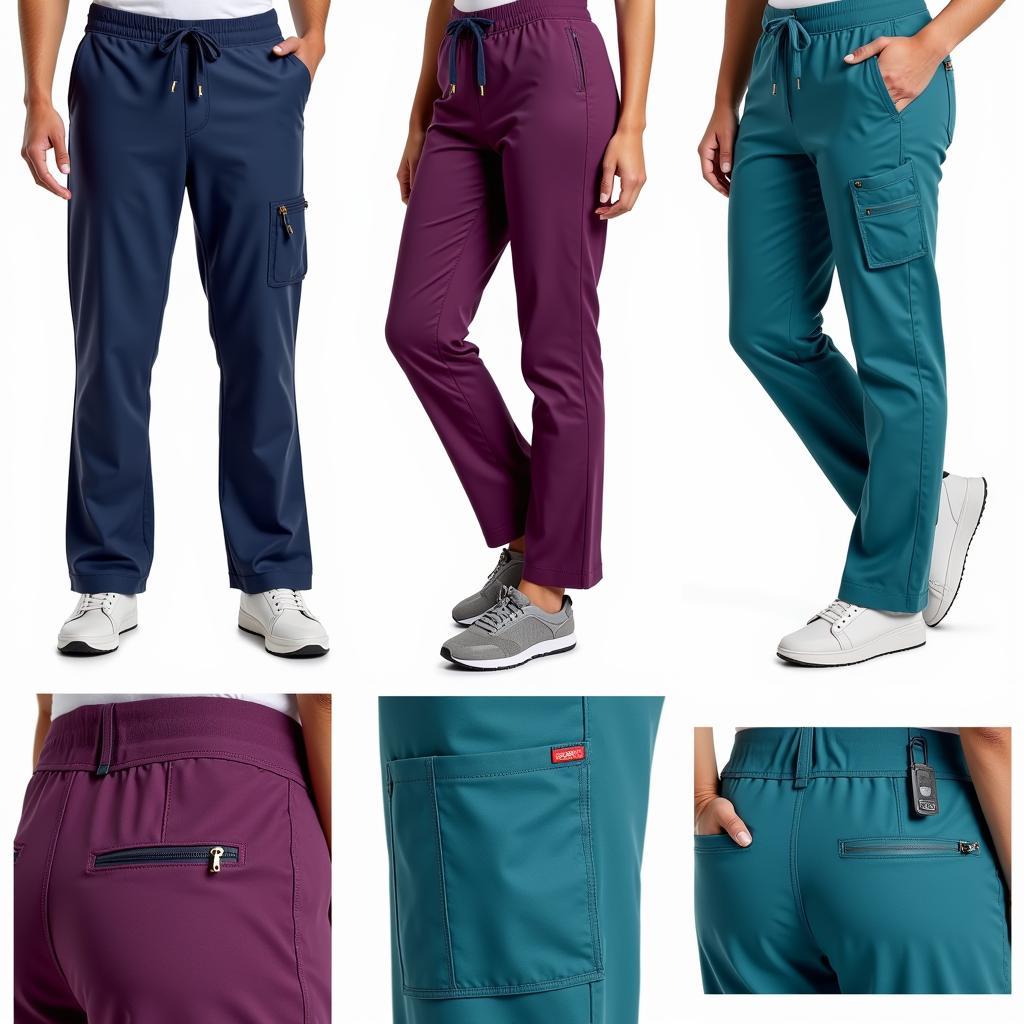Veterinarian Clothes are essential for maintaining hygiene and professionalism in any animal care setting. From scrubs to surgical gowns, the right attire protects both the veterinarian and their patients. This guide explores the various types of veterinarian clothes, their importance, and how to choose the right garments.
Why are Veterinarian Clothes So Important?
Veterinarian clothes serve several crucial functions. First and foremost, they provide a barrier against zoonotic diseases, protecting veterinarians from potential infections transmitted from animals. Secondly, they protect animals from exposure to outside contaminants that veterinarians may carry on their regular clothing. Finally, professional attire fosters trust and confidence in clients, reinforcing the veterinarian’s expertise and dedication to animal care.
Wearing appropriate veterinarian clothes also helps to maintain a clean and sterile environment, particularly during surgical procedures. This is critical for minimizing the risk of infections and ensuring the best possible outcomes for animal patients. Furthermore, specific types of veterinarian clothes, such as surgical gowns and gloves, are designed to be easily disinfected or disposed of, further reducing the spread of pathogens. The choice of appropriate clothing reflects a commitment to best practices and a high standard of care.
Types of Veterinarian Clothes
Veterinarian clothing comes in various forms, each designed for specific purposes. Common types include:
- Scrubs: These are the everyday uniform for most veterinary professionals. Scrubs are comfortable, durable, and easy to clean, making them ideal for daily tasks.
- Surgical Gowns: Worn during surgical procedures, these gowns provide a sterile barrier to protect both the veterinarian and the patient from infection.
- Lab Coats: These offer an additional layer of protection over scrubs and can be easily removed when needed. They are especially helpful when handling hazardous substances or performing diagnostic tests.
- Gloves: Essential for preventing the spread of infection and protecting the veterinarian’s hands from potential hazards. Gloves are available in various materials and thicknesses to suit different procedures.
- Coveralls: Provide full-body protection and are particularly useful in situations involving highly contagious diseases or when dealing with messy procedures.
- Surgical Caps and Masks: These help to maintain a sterile environment during surgery and prevent the spread of airborne contaminants.
- Protective Eyewear: Shields the eyes from splashes, debris, and potential infections.
Choosing the Right Veterinarian Clothes
Selecting the appropriate veterinarian clothes depends on several factors, including the specific tasks being performed, the level of risk involved, and personal preferences.
What to Look for in Veterinarian Scrubs?
Durability, comfort, and ease of cleaning are essential considerations when choosing scrubs. Look for fabrics that are resistant to stains, wrinkles, and fading. A comfortable fit is also crucial for allowing freedom of movement during long shifts.
 Choosing the Right Veterinarian Scrubs
Choosing the Right Veterinarian Scrubs
Selecting Appropriate Gloves
The choice of gloves depends on the specific task. For routine examinations, latex or nitrile gloves are commonly used. For surgical procedures, sterile surgical gloves are required. When handling hazardous chemicals, thicker gloves made from specialized materials may be necessary.
How to Care for Veterinarian Clothes
Proper care and maintenance are essential for prolonging the lifespan of veterinarian clothes and ensuring their effectiveness in preventing infection.
- Washing: Scrubs and lab coats should be washed regularly in hot water with detergent. Follow the manufacturer’s instructions for specific care guidelines.
- Disinfection: Items used during surgical procedures or when handling infectious materials should be properly disinfected before washing.
- Disposal: Single-use items like gloves and surgical masks should be disposed of appropriately after each use.
What are the Best Practices for Maintaining Hygiene?
Maintaining good hygiene practices is paramount in a veterinary setting. This includes regular handwashing, proper disinfection of equipment, and appropriate disposal of contaminated materials. By adhering to these practices, veterinarians can minimize the risk of infection for themselves, their patients, and their clients.
Conclusion
Veterinarian clothes are vital for protecting both animal patients and veterinary professionals. By understanding the different types of clothing available and choosing the right garments for each task, veterinarians can maintain a safe and hygienic environment while providing the best possible care. Investing in high-quality, comfortable, and functional veterinarian clothes is an investment in the health and well-being of both animals and the people who care for them. Remember to prioritize durability and ease of cleaning when selecting your attire.
FAQ
- What are the most common types of veterinarian clothes? Scrubs, surgical gowns, lab coats, gloves, and masks are commonly used.
- Why is it important to wear gloves? Gloves prevent the spread of infection and protect the veterinarian’s hands.
- How often should scrubs be washed? Scrubs should be washed after each shift, especially if they have been exposed to bodily fluids or contaminants.
- What type of gloves should be used for surgery? Sterile surgical gloves are required for surgical procedures.
- What is the purpose of a surgical gown? Surgical gowns provide a sterile barrier to protect both the veterinarian and the patient from infection.
- What are some tips for choosing comfortable scrubs? Look for scrubs made from breathable fabrics with a comfortable fit that allows for freedom of movement.
- Why is proper hygiene important in a veterinary setting? Proper hygiene minimizes the risk of infection for everyone involved.
For further information on related topics, you might be interested in our article on play set doctor.
Need more assistance? Please contact us: Phone: 0902476650, Email: [email protected] or visit us at 139 Đ. Võ Văn Kiệt, Hoà Long, Bà Rịa, Bà Rịa – Vũng Tàu, Vietnam. Our customer service team is available 24/7.





